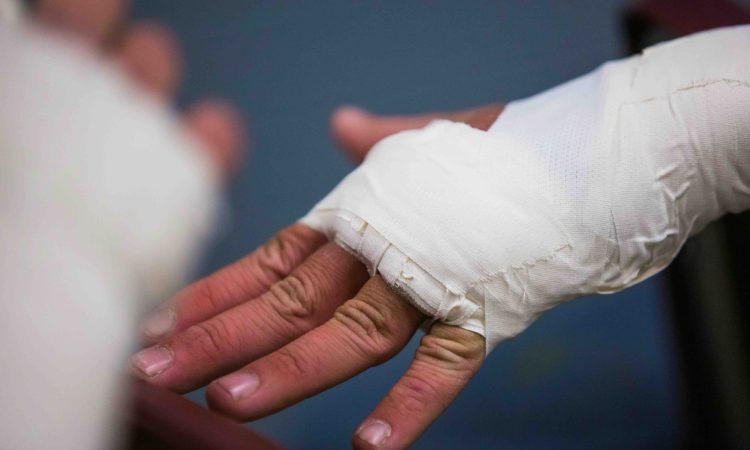
Going to Court in Personal Injury Cases: Understanding the Risks and Realities
If you’ve been injured in an accident, the idea of pursuing compensation can seem like the obvious next step. However, it’s important to understand that going to court with a personal injury claim involves risks and complexities that are often overlooked. Simply because an accident has happened, it does not automatically mean you will be entitled to compensation, nor does making a claim guarantee that the defendant will change their practices or admit fault.
Accidents Happen But That Doesn’t Mean Compensation Is Automatic
Personal injury law is designed to compensate individuals who suffer injury or loss due to someone else’s negligence. But the law also recognises that accidents happen for many reasons, and that not all accidents are caused by another party’s fault.
Just because you have been injured does not mean that compensation is automatically due. The claimant must prove that the defendant owed a legal duty of care, that this duty was breached, and that the breach caused the injury. If these elements cannot be established, the claim is unlikely to succeed.
Defendants Aren’t Always Fully at Fault: The Role of Contributory Negligence
In many cases, the courts find that the claimant shares some responsibility for what happened. This is known as contributory negligence. For example, if you were injured in a road accident but you were partly distracted or failed to take reasonable care yourself, the court might decide you contributed to your own injury.
When contributory negligence is found, the compensation awarded will usually be reduced in proportion to your share of responsibility. So, if you are 40% at fault, you will receive 60% of the full compensation amount.
Contributory negligence is a common finding in personal injury claims and claimants should be prepared that their compensation could be reduced or even lost if they bear significant responsibility.
Occupiers’ Liability: A Duty to Keep Visitors Reasonably Safe
Many personal injury claims arise from accidents on another person’s property, such as slips, trips, or falls in shops, offices, or public places. Under the law of occupiers’ liability, the occupier of premises owes visitors a duty to keep them reasonably safe.
It’s important to understand that this duty is not absolute. Occupiers are not required to make their premises completely risk-free or to guarantee visitor safety at all times. Rather, they must take reasonable steps to manage foreseeable risks. What counts as “reasonable” will depend on the circumstances and nature of the premises.
For example, an occupier may need to clear spills promptly or warn visitors about temporary hazards. But if a visitor ignores obvious warnings or acts carelessly, this can affect the outcome of a claim.
Bringing a Claim Does Not Force Defendants to Change Their Practices
It is a common misconception that by bringing a personal injury claim, the defendant will automatically change their policies or practices. In reality, the legal process is focused on compensation for the injured individual, not on regulating or reforming business or organisational behaviour.
While some defendants may choose to improve safety standards after a claim or court case, there is no legal obligation for them to do so as a result of litigation. Claims primarily address individual losses and do not directly serve as a mechanism for broader change.
If your goal is to encourage safer practices, this is usually better achieved through reporting concerns to regulatory bodies or health and safety authorities rather than through civil claims.
The Role of the Judge and the Unpredictability of Trial Outcomes
If your case proceeds to trial, it will be decided by a single judge after reviewing all the evidence and legal arguments. This is a formal, adversarial process where both sides present their case.
Claimants need to understand that the outcome is never guaranteed. The judge may find that the defendant was not negligent, or that contributory negligence reduces compensation, or even that the claim has no legal basis.
Unlike settlement negotiations where parties agree on compensation, the trial’s verdict depends on the judge’s interpretation of sometimes complex facts and law. This unpredictability is an inherent risk of litigation.
What This Means for You as a Claimant
- No automatic entitlement: An accident or injury alone does not guarantee compensation. You must prove fault and causation.
- Shared responsibility is common: Contributory negligence often plays a role in reducing or denying claims.
- Occupiers’ liability has limits: Defendants must keep visitors reasonably safe, not perfectly safe.
- Legal claims do not compel change: Litigation is about compensation, not safety reforms or business practices.
- Trial outcomes are uncertain: A judge’s decision can go either way, and cases are never guaranteed wins.
Why Professional Legal Advice Is Crucial
Navigating a personal injury claim requires expert understanding of the law and realistic assessment of risks. An experienced personal injury solicitor will carefully evaluate your case, explain the chances of success, and guide you through the best course of action, whether that’s negotiating a fair settlement or proceeding to court.
How Hopkins Solicitors Can Help
At Hopkins Solicitors, we understand that every personal injury case is unique and can be emotionally and financially challenging. Our dedicated team specialises in personal injury law and provides clear, honest advice about your prospects of success and the potential risks involved in litigation.
We are committed to supporting you throughout the entire claims process, helping you make informed decisions about whether to settle or pursue your case in court. While we strive for the best possible outcome, we also prepare you for the realities of the legal system, ensuring there are no surprises along the way.
If you’ve been injured and want trusted, professional advice on how to proceed, get in touch with Hopkins Solicitors today. We offer an initial consultation to discuss your case and explain your options with no obligation.
Request a CallbackRelated Articles
-

The Importance of Financial Remedy Orders in Divorce
Divorce is tough, but what comes after can be even tougher if you don’t protect yourself financially. Many people think…
-

New Year, New Start (Leaving a Domestically Abusive Relationship)
For many, the New Year often signals a new start. Sometimes people decide it is time to leave a relationship…
-

Defendant Personal Injury Claims: A Detailed Guide on the Process, Costs, PAD Applications, and How to Protect Your Business
At Hopkins Solicitors, our Personal Injury team frequently advises businesses, organisations, and individuals who are facing claims made against them….